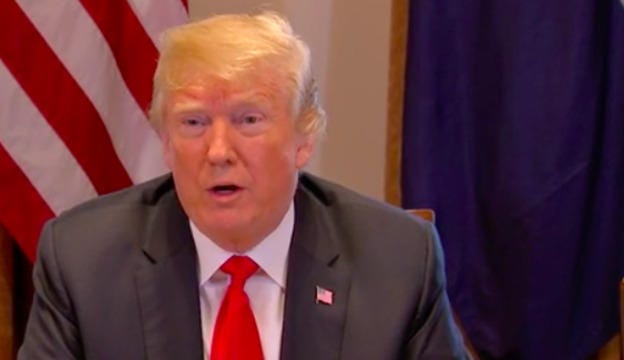The “These are Animals” Story was Misreported… Cause We’re Vultures


Earlier this week Donald Trump called a group of immigrants animals—“You wouldn’t believe how bad these people are. These aren’t people. These are animals.” The comment was broadcast far and wide with universal condemnation. A tweet from The New York Times was typical,
“Trump lashed out at undocumented immigrants during a White House meeting, calling those trying to breach the country’s borders ‘animals.'”
The statement, it turns out, came on the heels of a comment by Fresno County Sheriff Margaret Mims who was talking about the notorious gang MS-13. In context, it’s clear that the President wasn’t speaking of immigrants generally, but of one of the most brutal, vicious gangs in North America particularly.
Perhaps it’s still morally questionable to refer to even the most hardened of criminals in such a way, but It’s at least not a given. Indeed, it was one of President Obama’s great weaknesses that his moral imagination couldn’t—or wouldn’t—account for violent actors in such stark terms, preferring instead to qualify ostensibly evil acts with the language of mental illness, situational contextualization, etc.
To be sure, if President Obama erred in being too soft in his rhetoric, Trump has no doubt erred in being too hard. The truth is, one could imagine President Trump saying what he did about M-13 about undocumented immigrants carte blanche. He didn’t, thankfully, but it’s not beyond the realm of possibility, which is why so many were quick to believe it happened.
Of course, defenders of the President weren’t surprised by the day’s coverage—just another instance of the lamestream media spouting fake news in an effort to undermine the 2016 election. Yet, despite what Sean Hannity may insist, the problem is not, in fact, a unified, faceless conglomerate—“the media”—seeking to take down the President. Were that the case—were there really two actors, the POTUS and the media, competing against one another in a battle for the public’s trust—then the faux reporting wouldn’t have happened. There’s no doubt that this week was a net loss for the proverbial media. There is even less confidence in journalism this week than there was last week. John Wilson, former editor of Books and Culture, was right when he tweeted about the incident,
“What makes it even worse is that it is CALCULATED (calculated in part to provoke critics to say he’s contemplating genocide, etc., which hyperbole then generates more support from his base).”
So while the coverage turned out to be a win for the President, it was nevertheless a net gain for those individual journalists and bloggers who got the clicks and eyeballs they were aiming for in the first place. And that’s the rub: the problem is less nefarious and more dangerous than the current narrative grants. So long as we exclusively look for those news sources that confirm what we already believe, there will be willing and able writers to whet our appetites with half-true stories (and as our grandmothers taught us, half-truths are just whole-lies in disguise).

Take an example less infused with political heat. Shortly after the infamous Southwest Airlines Flight 1380 required an emergency landing, the front page of various news sources was striking. The top story at CNN read, “Hero pilot is a woman–of course.” Compare that with the headline at FOX, “Hero in a Cowboy hat.” Both stories were true, but both appealed to the sensibilities of their readership. In other words, the desire wasn’t to inform but to draw in readers by reaffirming biases.
This is a good example of the real problem with modern journalism, and “fake news” isn’t a helpful description—that shifts the blame to them when it belongs to us. We’re eager to see heroes that share our sensibilities, and news agencies deliver. This can seem fairly benign, like in this case. But the converse is also true: we’re hungry to see the other villainized and demeaned, and news agencies deliver on that too, which really is corrosive to our social fabric.

You may not think Donald Trump is morally fit to be President. That’s a perfectly acceptable position to hold; it’s one I happen to hold myself, in fact. We err when we only look at news which caters to that narrative, refusing to accept troublesome data or twisting the data to fit the conclusions we already hold, which is what happened with the “animals” story. There will always be a supply for that which we demand.
It’s true, journalists indeed need more integrity, but so too do we need more empathy. Until we’re able to see the villain in our tribe (and, indeed, ourselves) and the hero in the other tribe, we’ll keep getting half the story.
The post The “These are Animals” Story was Misreported… Cause We’re Vultures appeared first on Kuyperian Commentary.

